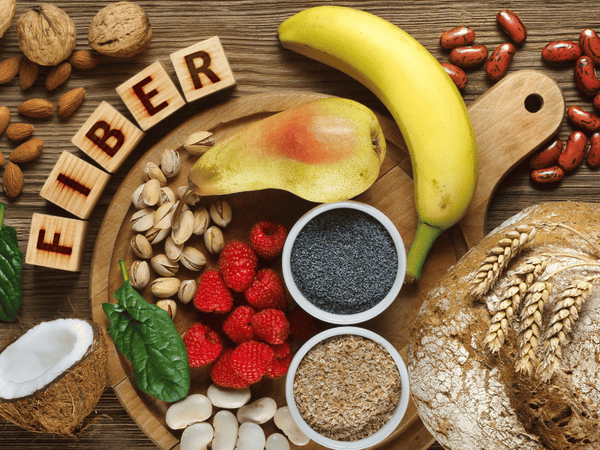Constipation is a common digestive ailment that affects millions of people worldwide. Characterized by infrequent bowel movements, the inability to pass stools, and discomfort, it's often seen as a nuisance rather than a serious health concern. Constipation does not usually cause severe back pain. However, it may be a side effect of severe back pain.
In this article, we delve into a fascinating yet often-overlooked question: Can constipation cause back pain? While it may seem like an unlikely connection, emerging research and clinical observations suggest that there might be more to this relationship than meets the eye.
Understanding Constipation and Its Factors
Constipation is a condition marked by infrequent bowel motions, difficulty passing stool, and a feeling of incomplete evacuation. It is not merely an occasional discomfort. While the frequency of bowel movements can vary from person to person, experiencing fewer than three bowel movements per week is often considered a sign of constipation. Constipation does not usually cause severe back pain. However, it may be a side effect of severe back pain.
Several factors can contribute to the development of constipation, including:
Dietary Choices
A diet low in fiber and fluids can contribute to constipation, as fiber helps promote normal bowel movements and regularity of bowel movement by adding bulk to stool and facilitating its passage through the intestines and digestive tract. Inadequate fluid intake can also lead to dull ache and constipation due to dehydration, making the stool harder and the dry stool more difficult to pass as the dry stool swells the intestines.
Lifestyle Habits
Constipation can be exacerbated by a sedentary lifestyle and lack of physical activity, which can slow down regular bowel movements. Regular exercise helps stimulate intestinal motility and promote digestive health.
Medications
Certain medications, such pain medications such as opioids, antacids containing calcium or aluminum, antidepressants, and some antihistamines, can cause constipation as a side effect by slowing down bowel function.
Medical Conditions
Chronic conditions like irritable bowel syndrome (IBS), hypothyroidism, diabetes, and neurological disorders can disrupt normal bowel function and lead to constipation.
Recognizing the signs and symptoms of constipation is crucial for early intervention and management. Common symptoms include:
-
Dull ache during bowel movements
-
Hard lumpy stools, fecal impaction
-
A feeling of incomplete evacuation
-
Abdominal discomfort or bloating
-
Rectal bleeding or fissures due to straining
Back Pain: Types and Its Causes
Back pain is a prevalent health issue that affects people of all ages and backgrounds. From mild discomfort to debilitating agony, back pain can significantly impact daily life and productivity.
Types of Back Pain
Acute Back Pain: This type of severe back pain typically lasts for a few days to a few weeks and is often caused by sudden injury or strain, such as lifting heavy objects incorrectly.
Chronic Back Pain: This pain persists for longer than three months and may be related to underlying medical conditions, such as degenerative disc disease or arthritis. Chronic pain can cause stress and anxiety, triggering changes in bowel habits.
Lower Back Pain: Lower back pain is the most common type of back pain and can range from mild to more severe cases. It often stems from muscle strain, injury, or degenerative changes in the spine.
Radiating Pain: Some individuals experience back pain that radiates to other parts of the body, such as the legs or buttocks, which may indicate nerve compression or irritation of spinal nerves.
Common Causes of Back Pain
Muscle Strain: Lifting heavy objects, overexertion, or sudden movements can strain the muscles and ligaments in the lower back sometimes, leading to pain and stiffness.
Herniated Discs: Disc herniation occurs when the soft inner core of a spinal disc protrudes through the tough outer layer, putting extra pressure on nearby nerves and causing pain.
Spinal Conditions: Injury to the spine is a common cause of lower back pain. Degenerative conditions like osteoarthritis, spinal stenosis, and spondylolisthesis can cause structural changes in the spine, resulting in chronic back pain.
Traumatic Injury: Accidents, falls, or sports injuries can damage the structures of the spine, leading to acute or chronic lower back pain afterward.
Poor Posture: Prolonged sitting, standing, or incorrect body mechanics can strain the lower back and muscles and contribute to discomfort and pain.
Alive Market Full Spectrum CBD Daily Gummies
Alive Market CBD Daily Gummies | Full Spectrum offer a natural solution to alleviate discomfort associated with constipation-induced back pain. Infused with full-spectrum CBD, these gummies work synergistically with the body's endocannabinoid system to promote balance and alleviate pain. CBD's anti-inflammatory properties help relax muscles and ease tension, providing relief from the discomfort often associated with constipation.
Impact of Constipation on Spinal Health
Constipation can indeed cause back pain, as a blockage of waste in your lower intestines can cause pain to radiate in your lower back. Constipation, if left unmanaged, can exert various effects on spinal health, potentially exacerbating back pain symptoms and compromising overall musculoskeletal function.
Here are some key aspects to consider:
Increased Strain on the Lumbar Spine: Prolonged constipation often leads to excessive straining during bowel movements, placing added stress on the muscles, ligaments, and discs of the lumbar spine. This repetitive strain can contribute to muscular fatigue, microtrauma, and structural imbalances, predisposing individuals to both constipation and acute or chronic lower back pain.
Pelvic Floor Dysfunction: Constipation and back pain may be associated with pelvic floor dysfunction, a serious condition characterized by impaired coordination of the bowel and rectum, bowel movement itself, and weakness of the muscles that support bowel movement in the rectum and pelvic organs.
Altered Postural Alignment: Chronic constipation can induce changes in posture and spinal alignment as individuals adopt compensatory strategies to alleviate discomfort during bowel movements. These postural alterations, such as excessive lumbar lordosis or pelvic tilt, may place additional strain on the spine and musculature, predisposing individuals to experience more constipation related to musculoskeletal pain and dysfunction.
Reduced Spinal Mobility: Constipation-induced discomfort and other symptoms of back pain and constipation-related pain may limit spinal mobility and range of motion, leading to stiffness and reduced flexibility in the lumbar spine. Diminished spinal mobility can cause constipation, which can cause back pain.
Psychosocial Impact: Chronic constipation and associated back and abdominal pain can have profound psychosocial implications, affecting mood, sleep, and overall well-being. Persistent discomfort, both back and abdominal pain, and constipation may contribute to feelings of frustration, anxiety, and depression.
Lifestyle Factors and Preventing Constipation That Cause Back Pain
Addressing constipation and promoting optimal gut health requires a multifaceted approach that encompasses simple dietary modifications, hydration, regular physical activity, and stress management techniques.
Here are some practical strategies for promoting bowel regularity and spinal health:
Fiber-Rich Diet

Incorporate plenty of fiber-rich foods into your daily meals, including fruits, vegetables, whole grains, legumes, and nuts. Dietary fiber adds bulk to stool, promotes regular bowel movements, and helps prevent constipation. Aim for at least 25–30 grams of fiber per day for optimal digestive health.
Hydration
Stay hydrated by drinking plenty of water throughout the day. Adequate water intake softens stool, can allow your body to regulate bowel habits, and reduces the other risk factors of constipation. Aim to consume at least 8–10 cups of water daily, and limit water intake because of dehydrating beverages like caffeinated or alcoholic drinks. Constipation can result from dehydration, so drinking enough fluids to stay hydrated is key.
Regular Exercise

Engage in regular physical activity to stimulate bowel motility and promote overall gut health. Activities such as walking, jogging, swimming, yoga, and cycling can help regulate digestion, alleviate constipation, and strengthen the muscles supporting the spine. Aim for at least 30 minutes of moderate-intensity exercise most days of the week. Lack of physical activity can trigger back pain, apart from constipation.
Healthy Bowel Habits
Establish a regular bowel movement routine by setting aside time each day for bowel movements, preferably after meals when the gastrocolic reflex is most active. Avoid delaying or having regular bowel movements by suppressing the urge to defecate, as this can lead to stool retention and exacerbate constipation.
Stress Management

Practice stress-reduction techniques such as deep breathing, meditation, yoga, or mindfulness to promote relaxation and optimize gut-brain communication. Chronic stress can disrupt the digestive system and function and exacerbate gastrointestinal symptoms, including constipation and back pain.
Optimize Toilet Posture
Use proper toileting posture by elevating your feet with a small stool or footrest while sitting on the toilet. This position, known as the "squatting position," helps relax the pelvic floor muscles and straighten the recto-anal canal, making it easier to evacuate stool.
Supplemental Support

Consider incorporating dietary supplements with more fiber or probiotics to support digestive health and alleviate constipation. Fiber supplements, magnesium, probiotics, and herbal remedies such as psyllium husk or senna may help promote bowel regularity and eliminate constipation when used as directed and in conjunction with dietary and lifestyle modifications. While taking medications, stool softeners and laxatives can help prevent constipation and offer some relief.
When to Seek Medical Help
While lifestyle modifications and preventive measures can often alleviate mild constipation and back pain, it's essential to recognize when symptoms warrant medical evaluation and intervention. If severe constipation persists, back pain may be indicative of underlying medical conditions that require prompt attention from healthcare professionals. They can help diagnose the root cause of your symptoms before searching for a solution.
Lower back pain should be treated immediately regardless of the issue's gravity, and if constipation is its leading cause, it may indicate some underlying issue with your digestive system that should be immediately addressed.
Here are some common treatments and some warning signs to watch out for:
Persistent Constipation: If your constipation occurs and persists for more than a few weeks despite dietary and lifestyle changes, or if you experience severe abdominal discomfort, abdominal cramping, bloating, or rectal bleeding, it's crucial to seek medical evaluation. Chronic constipation may be a symptom of underlying gastrointestinal disorders such as irritable bowel syndrome (IBS), colonic inertia, or colorectal cancer.
Unexplained Weight Loss: Significant and unexplained weight loss accompanying constipation or back pain may signal a more serious underlying condition, such as liver disorders such as inflammatory bowel disease, gastrointestinal malignancy, or thyroid disorders. Rapid or unintentional weight loss requires a thorough medical assessment to identify and address the underlying issue or root cause first.
Severe or Progressive Back Pain: If back pain is severe, persistent, or progressively worsening over time, it may indicate an underlying spinal pathology requiring medical evaluation and treatment. Red flags for serious spinal conditions include radiating, serious abdominal or severe back pain, lower back or leg pain, or leg pain throughout, numbness or weakness in the legs, loss of bowel or bladder control, and night pain that disrupts sleep.
Neurological Symptoms: Any neurological symptoms associated with constipation or back pain, such as difficulty walking, loss of sensation, or changes in bowel or bladder function, warrant urgent medical attention. These or other symptoms may indicate nerve compression or spinal cord injury requiring immediate intervention.
History of Cancer or Trauma: Individuals with a history of cancer, a spinal cord injury, or recent trauma should be vigilant for new or worsening constipation and back pain symptoms. These individuals may be at higher risk of spinal metastases, serious spinal cord injury or compression, or other serious complications requiring specialized medical care and other treatment options.
Medication Side Effects: Certain medications used to take pain medications to treat constipation, back pain, or other medical conditions may cause adverse side effects or exacerbate existing symptoms. If you experience unexpected serious side effects, treatment effects, or worsening of symptoms while taking medication, consult your healthcare provider for guidance.
Conclusion
In conclusion, while the link between constipation and back pain may not be immediately apparent, the evidence suggests a complex interplay between gastrointestinal health and spinal function. Constipation, characterized by infrequent bowel movements and difficulty passing stool, can exert various effects on spinal mechanics, posture, and musculoskeletal health, potentially contributing to or exacerbating back pain symptoms.
Furthermore, it's crucial to remain vigilant for warning signs of underlying medical conditions, such as persistent or severe constipation, unexplained weight loss, progressive or severe back pain or leg pain, neurological symptoms, or medication side effects, which may require medical evaluation and intervention.
Stay informed, stay proactive, and prioritize your health journey every step of the way. Here's to a life filled with vitality, resilience, and holistic well-being.


